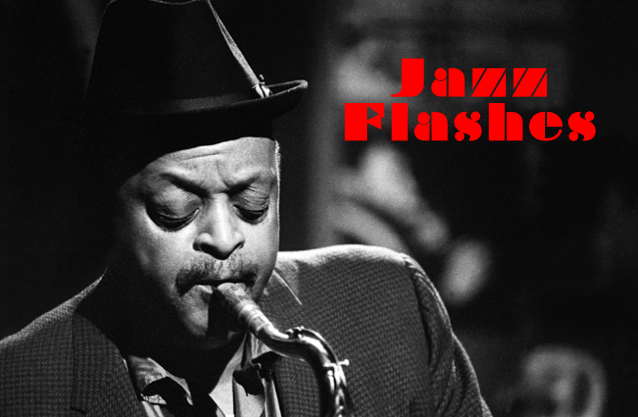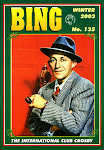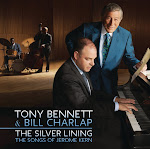In this second installment of the All What Blues series, we delve into the fascinating career of Bull Moose Jackson, a man who embraced a myriad of styles, from blues to jazz to pop to country. He could sing a sweet ballad and follow it up with a risque blues, all the while blowing some very worthy saxophone. Here is, briefly, the story and the legacy of one of the most exciting jump bluesmen of all time.
In memoriam Philip Larkin
In the
All Music Guide to Blues, Bill Dahl writes that
Bull Moose Jackson "had a split musical personality" (213), and if we listen to his records, we must agree that Jackson was, indeed, a Jekyll-and-Hyde sort of bluesman, the kind that
Robert Louis Stevenson, had he ever heard of the blues, would have loved. On the one hand, when he was feeling like Dr. Jekyll, Jackson sang sweet love songs in a style that reminds us of
Billy Eckstine, though his voice was not as deep and versatile as Mr. B.'s. But when he turned into Mr. Hyde, Jackson sang funny, mildly risque jump blues songs with titles such as "Big Ten-Inch Record," "I Want a Bowlegged Woman," "Nosey Joe," and "We Can Talk Some Trash." And there was yet another side to his musical output: because he spent a big chunk of his recording career at
Syd Nathan's King Records, which was originally a country label, Jackson cut rhythm and blues versions of country and western tunes such as
Wayne Raney's
"Why Don't You Haul Off and Love Me" and
Faron Young's "If You Ain't Lovin' You Ain't Livin'."
 |
| Bandleader Lucky Millinder |
Of course, his given name was not Bull Moose but Benjamin Joseph Jackson, and he was born in Cleveland, Ohio, in 1919 into a musical family that encouraged his interest in music. It appears that as a kid he tried to learn the violin but he quickly became interested in the saxophone upon first hearing jazz, and throughout his career, both his singing and his playing would be featured on his records. In 1943 he joined the reed section of
Lucky Millinder's popular orchestra, singing occasionally with the band. It was also around this time that he acquired the nickname of Bull Moose, allegedly from some fellow band members who thought he looked like that animal, and the moniker would stick with him for the rest of his life. Jackson was growing increasingly popular within the Millinder outfit, and so in 1946, apparently at the suggestion of Millinder himself, he struck out on his own, cutting his very first solo record,
"Who Threw the Whiskey in the Well." This led to a long and fruitful association with King Records, a label that was dabbling in both the country and r&b markets and that, therefore, urged its blues artists to record country songs and vice versa.
It is at King that Jackson's so-called split musical personality developed in full. Some of his Eckstine-like slow numbers, such as
"I Love You, Yes I Do" and
"All My Love Belongs to You," with arrangements that also spotlighted his sax playing, became hits. But the buying public also received Jackson's more risque outings rather well, in particular
"I Want a Bowlegged Woman," Jerry Leiber and
Mike Stoller's
"Nosey Joe" ("he's ready to stick his long nose in their [women's] business"), and his classic
"Big Ten-Inch Record," whose clever lyrics went like this:
Got me the strangest woman
Believe me, this chick's no cinch
But I really get her going
When I take out my big ten-inch
Record of the band that plays the blues
The band that plays the blues
She just loves my big ten-inch
Record of her favorite blues.
 |
| Vocalist Annisteen Allen |
On this particular song, Jackson is backed by
Tiny Bradshaw's orchestra, and he also gets to play some zesty saxophone. It is a hilarious jump blues whose beat—like most records of this kind—prefigures rock and roll and whose witty lyrics were considered racy at the time but are, of course, rather mild by today's standards. Ironically, although Jackson toured far and wide in the late forties and throughout the fifties, the arrival of rock and roll brought his career (as it did the careers of many other artists of his kind) to a halt. Although in 1961 he re-recorded his early hit, "I Love You, Yes I Do" for a small independent label, he would soon quit touring, and for the next two decades or so took a job with a catering company that worked for Howard University in Washington, DC. It seemed that this would be all we would ever hear from Bull Moose, but in the 1980s, he did enjoy a sort of a comeback, however brief, when the Pittsburgh band,
The Flashcats, who had been singing some of his songs for years, conspired to bring him out of obscurity. Jackson recorded a fine album with them,
Moosemania! (which was fortunately reissued on CD by Bogus Records in 1992 as
The Final Recordings) and even did some live appearances, but this comeback was sadly cut short by Jackson's failing health. Bull Moose Jackson passed away shortly thereafter, in his hometown of Cleveland in 1989, at age 70.
Anyone who wishes to dig deep into Jackson's split musical personality should locate
The Bull Moose Jackson Collection 1945-1955 (Acrobat, 2013), a fantastic two-CD set that contains all his best recordings, made over a ten-year period when he was in his absolute prime. Here you will find both Jekyll and Hyde, both the sweet and the lowdown, both the romantic crooner and the saucy jump bluesman. Many of his fine records with Millinder are included, as well as sides that feature female vocalist
Annisteen Allen, and of course, all of his hits for King with his own band, the Buffalo Bearcats, and even his r&b covers of country and western hits. Though Bull Moose may not be as popular today as he was in his heyday, his recorded output that is wisely anthologized in this set definitely needs to be rediscovered and enjoyed because it is simply wonderful music.
Further reading
Those interested in finding out more about Bull Moose Jackson should check out this interesting
tribute website put together by Bogus Records.
 |
| Bull Moose Jackson in his final years |



































